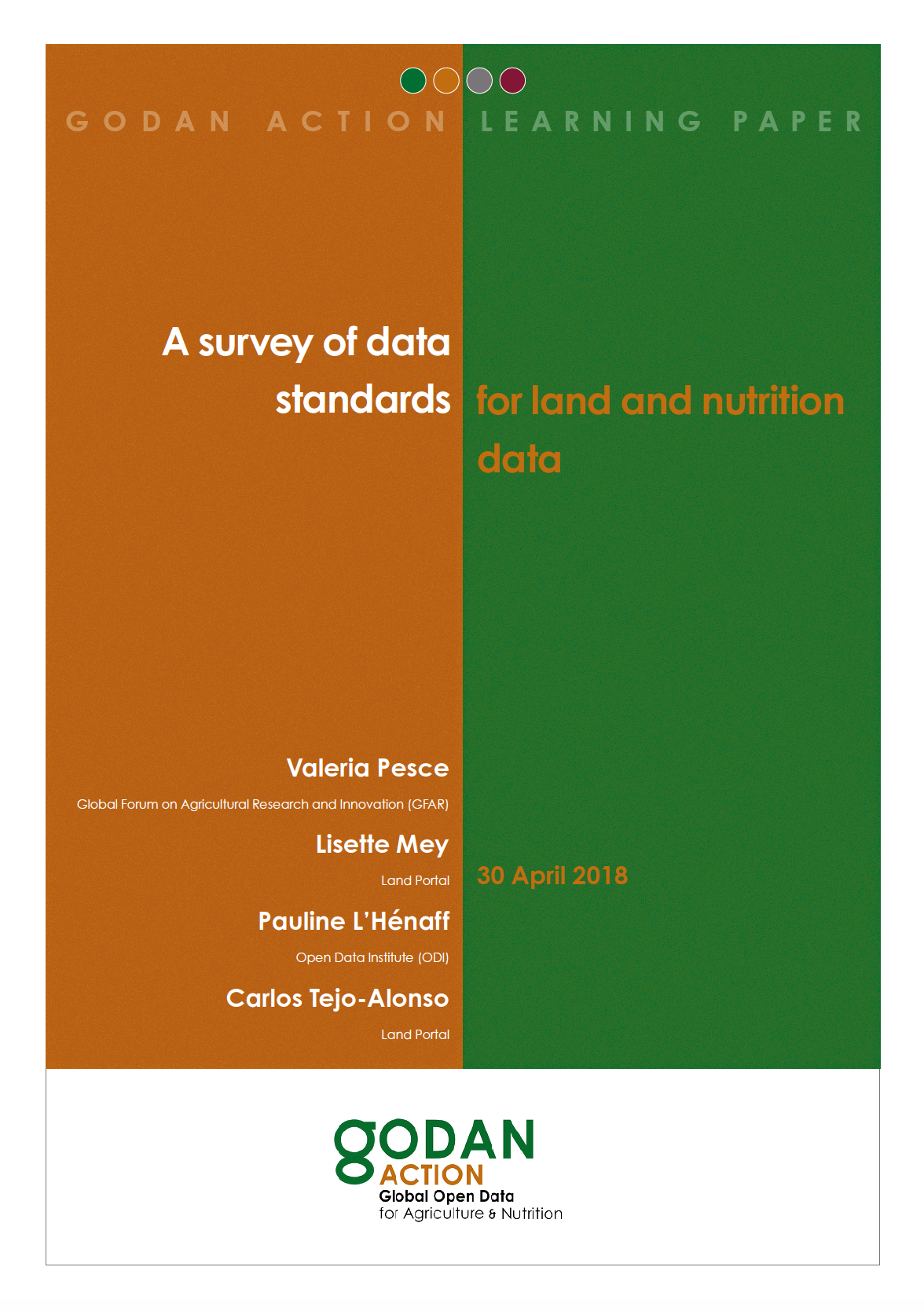Resource information
GODAN Action supports data users, producers and intermediaries to effectively engage with open data and maximise its potential for impact in the agriculture and nutrition sectors. In particular, we work to strengthen capacity, to promote common standards and best practice, and to improve how we measure impact.
This report is a short accompanying document to the GODAN Action Map of Data Standards (http://vest.
agrisemantics.org) which now includes two new sections dedicated to data standards relevant for the two thematic topics, which are the GODAN Action project focuses in its second year: land data and nutrition data.
What we describe in detail here is the process followed to identify relevant data standards for the two new thematic topics.
As we did for weather data in the first year of the project, we framed our survey of data standards around: the types of data commonly used for land and nutrition; the standardisation practices that are currently in use for these types of data (from statistical data formats to code lists and classification schemes); the corresponding authoritative bodies to which all experts look to, as well as important projects and initiatives.
An initial overview of the data standards identified shows that the data formats most widely used for these types of data are the typical statistical formats (from tabular to SDMX). Indeed, malnutrition, land tenure and land use are socio-economic dimensions, mainly measured through statistics and surveys and elaborated through projections.
On the other hand, the truly topic-specific data standards are the data dictionaries, code lists and the classification schemes used for each specific type of data. This explains why the majority of the data standards identified for these two thematic topics are value vocabularies, like code lists and classification schemes. However, beyond a few formalised classifications, most of the standardisation work in these areas is done through recommendations and guidelines issued by authoritative bodies.
A more in-depth analysis of the data standards and standardisation gaps in the areas of land data and nutrition data is provided in our full gap exploration report (Pesce et al.; 2018).



